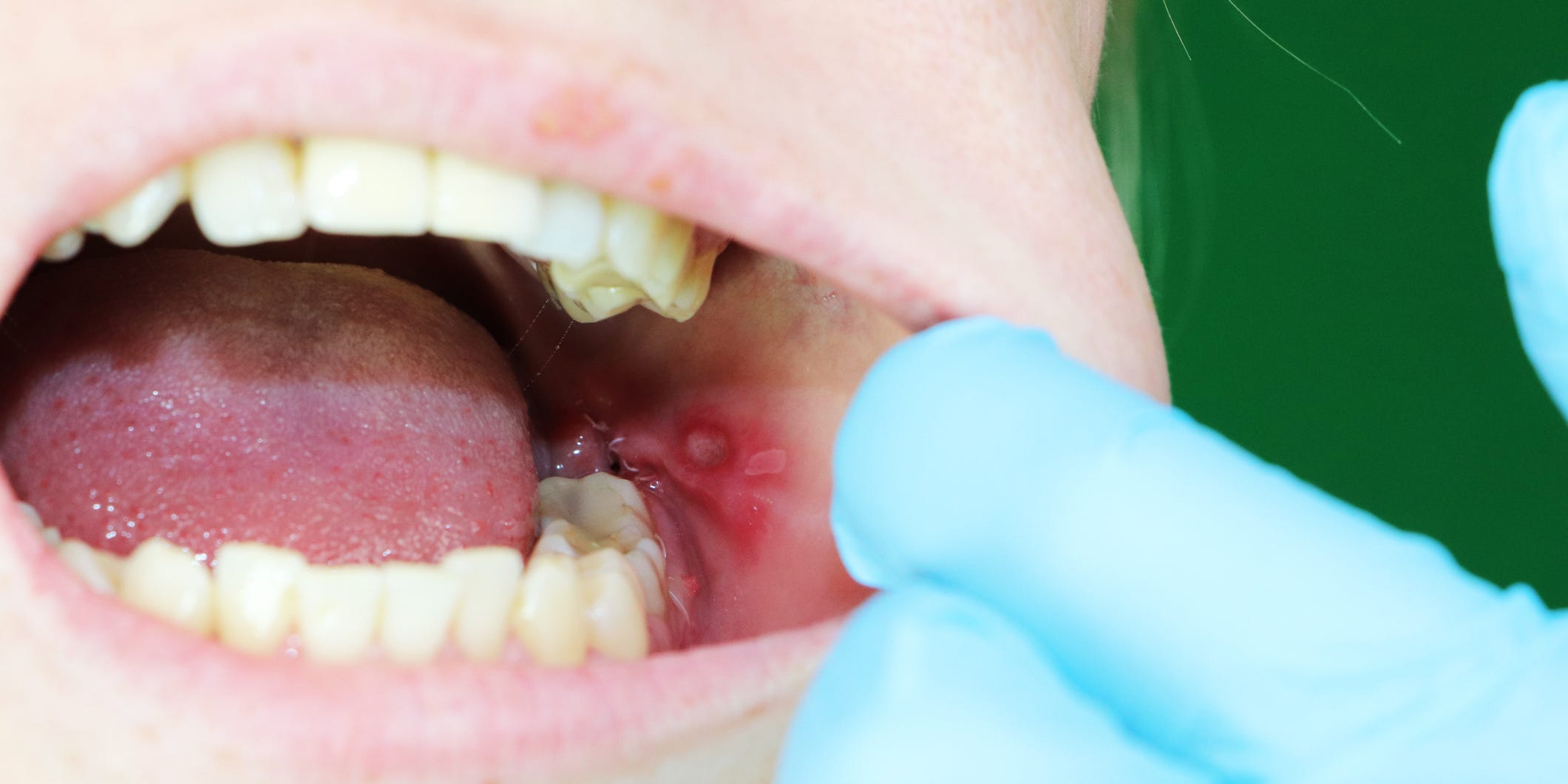
Alona Siniehina/Getty Images
- Canker sores are small, painful reddish lesions in the mouth that have a white or yellow center.
- Some causes of canker sores are spicy/acidic foods, vitamin deficiencies, braces, and stress.
- Most canker sores resolve on their own within a week others may require mouth rinses or oral medications.
- Visit Insider's Health Reference library for more advice.
Canker sores are small, painful lesions inside the mouth that appear as reddish sores with a white or yellow center, which make it difficult to eat or talk. They are generally split into two categories, namely:
- Simple canker sores, which are small sores that may last for about a week. You may experience it about three to four times a year.
- Complex canker sores, which are larger and more painful sores that can last up to a month. They generally occur less frequently.
The cause of canker sores is unknown, but it is generally triggered by allergic reactions, vitamin deficiencies, and inflammatory diseases, says Erich P. Voigt, MD, director of general otolaryngology at NYU Langone Health. It may also run in families due to heredity or shared environmental factors.
Here's what you need to know about the symptoms, causes, treatment, and prevention of canker sores.
It often gets mistaken for other mouth diseases, such as:
- Cold sores, which are fluid-filled blisters around the lips or inside the mouth
- Oral thrush, appearing as creamy white lesions in the mouth
- Leukoplakia, which looks like white or grayish patches that usually form in the gums or cheeks
- Oral lichen planus, a chronic condition that appears as white or red swollen patches or sores
- Oral cancer, which has plenty of symptoms such as white or reddish patches and mouth sores that don't heal
Unlike cold sores, canker sores aren't contagious or caused by herpes viral infections, nor do they give off a burning sensation before symptoms start to appear. However, the exact cause of canker sores remains unclear, but plenty of factors come into play.
According to Voigt, if you keep getting canker sores, you may have an underlying inflammatory disease that's causing the lesions, like ulcerative colitis, celiac disease, or Crohn's disease.
If you have sores that extend to your lips, last more than two weeks, and/or are accompanied by uncontrollable pain and high fever, you should consult your primary care provider or dentist.
How to treat canker sores
Canker sores go away on their own, so treatment isn't always necessary, especially if the symptoms are bearable.
However, if they're large and painful, you can try several treatment and pain relief options, which include:
Home remedies are very common, like rinsing with a salt water or hydrogen peroxide solution, but they don't change the condition very much, says Voigt.
Insider's takeaway
Canker sores are small and painful lesions in the mouth that appear white or yellow, surrounded by redness. The exact cause is unknown, but emotional stress, nutritional deficiencies, food sensitivities, and hormonal shifts may trigger canker sores.
For pain relief, you can apply topical treatments or take oral medications. It's possible to minimize the frequency of canker sores by maintaining good oral hygiene, having a balanced diet, and avoiding spicy or acidic foods that may irritate the mouth.
If you repeatedly get canker sores, you need to consult your primary care provider or dentist as there may be an underlying inflammatory disease that's causing the lesions.